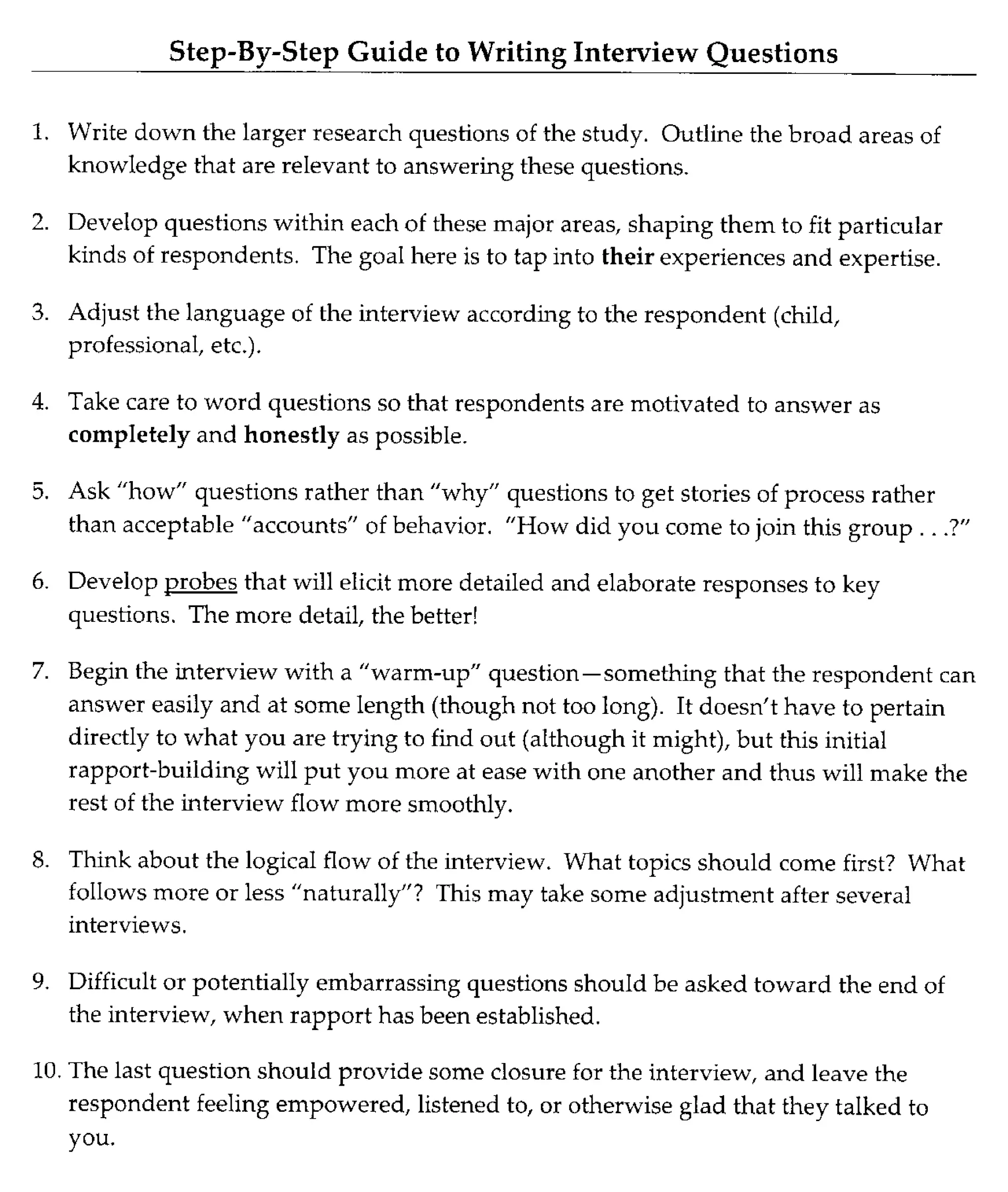This document provides a 10-step guide to writing effective interview questions: 1) outline research questions and relevant areas of knowledge; 2) develop questions within each area tailored to respondents; 3) adjust language for different respondents; 4) ask questions that motivate complete, honest answers; 5) ask "how" questions to elicit process stories; 6) develop follow-up probes for more detail; 7) begin with an easy warm-up question; 8) consider logical question flow; 9) ask difficult questions later; and 10) end on an empowering note.
